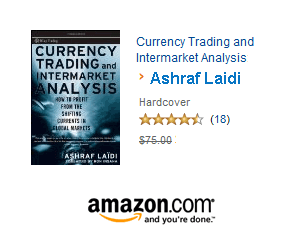Forum > View Topic (Article)
This thread was started in response to the Article:
Dollar Sobers Up Despite Fed PunchBowl
Time for US dollar to regain some composure, especially against the sterling, whose 2010 fortunes for the year appear dismal at best.







My fundamentals story is that there is a shrinking amount of space for private investment, at least the type of investment that can create massive employment. If this triggers enough social backlash, then all bets are off. You have periods of business dominance in history. But you have periods of major statism (the last great depression being a case in point) where the state has distinct advantages at answering where the private sector has difficulty answering.
In my view, it is the fundamental analysis that separates the boys from the men! Afterall, the greatest investor in the history of investing happens to be the greatest fundamental analyst in history too. And he's barely ever used technical analysis! No marks for guessing who he is. :)
Technical analysis lends itself to herd effect. Look at it this way - be it the case of a support, a resistance or a retracement...me, you, Ashraf, Goldman, Soros & everyone else would reach the same conclusion. Since it is that objective...we would (most probably) buy and sell at the same level. So it provides us w/ some level of certainty.
Fundamental analysis, conversely, & IMO, is largely subjective. My interpretation of a fundamental event could wildly differ from yours or Ashraf's or Goldman's. Again, this interpretation separates us lot from Ashraf...and verily, decides who runs the Forum...
Asad
P.S. While many analysts would love to believe that they focus on quant...it's actually the fundamental happenings that drive their trading/investing!
merry xmas and have a great new year.
you said we need to close s&p firmly above 1120 ie 1121 wouldnt be good enough.
given we have just closed at 1126, what are your views?
regards
Ashraf
Thank you for your input. l suppose l could use ETF'S, but l have never dealt with them,
your timing apparently has to be very precise. l guess i'm looking for a stress free life,
like having my cake and eating it to.
,
l trade exactly the same way you do, although not long term like youself, usually if l see 800/1000
pips if l dont see the trade going any further in the interim. What l would like to ask you,as you are
in for the longer term, do you hedge your bets, and if so how?
With all this talk of parity, what do people think about the possibility of EUR/GBP parity some time in 2010?
It almost happened in 2009 (and I was surprised it didn't become established).
Also, unrelated, I have been wondering where to ask this question, and in a discursive mode again, and because it is relatively quiet, what do people feel is the balance between fundamental and technical in their own trading?
I ask because I tend to think of Ashraf's approach as being mainly fundamental, but from time to time he makes some strong technical points, and he is usually pretty accurate.
However, in my own mind and my own trading I can't quite reconcile these two approaches. Just to say where I am coming from: I've been trading (spread-betting) for about 2 years, in a fairly small way. Like most people I began to learn TA, and went through the whole multiple indicator experience, eventually ending up with a minimal-indicator, price-action approach, pretty well ignoring fundamentals. I then realised that I was missing something by ignoring fundamentals, and began to try to learn more about how the market worked and how all the currencies, commodities and the stock market fitted together. Clearly Ashraf's approach has helped enormously with trying to understand all that. (I have the book and workbook). However, once I got into fundamentals, I tended to find myself deprecating technicals altogether, which I see is NOT the way Ashraf works.
And now I'm unsure how much weight to give each approach.
Just to elaborate further, I've read some market analysts who seem to have a lot of knowledge of the market who have (at best) deep reservations about TA, even about such cornerstones as support and resistance.
So why, for example, if we believe that it's really fundamentals that drive the market, why on earth should we believe that some historical level from the past should have any bearing, whether as support or resistance, in the future? This is my dilemma.
The only answer I can come up with is the old "self-fulfilling prophecy" one, but I don't think it's all that satisfactory.
I would be interested to read anyone else's thoughts on this.